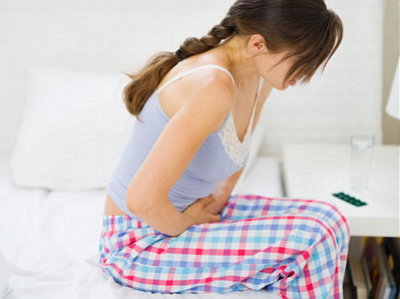Periods During Pregnancy

Contents:
- Are Periods During the Course of Pregnancy Always Assign that there is Some Danger?
- Pathologies that Periods During Pregnancy Can Cause
- The Danger that Periods During Pregnancy Have
Can You Get Your Period While You're Pregnant?
Pregnancy and periods are out of keeping with each other. In order to understand it you need to know elementary basics of anatomy. There are 3 layers in the uterus. The first one is an outer layer, it’s mucous. Then, the middle layer. Finally, after it, goes an inside mucous layer. Each layer has its own function. The muscle layer of the uterus that’s called myometrium has a protecting function. It protects the fetus from various external effects. Also, it is actively involved in the process of labor. It contracts and pushes the baby outside.
Endometrium is the most active and motile layer. During the first cycle, endometrium is able to build up. If pregnancy occurs, endometrium becomes thicker so that nothing is able to interrupt pregnancy until the placenta is formed. Gestational sac implants into the mucous membrane (shell).
If pregnancy doesn’t occur, endometrium gets completely rejected. This process is called periods. Blood vessels get damaged when the endometrium gets rejected. As a result, there is blood that together with the mucous gets out of your system. After that, the process is repeated. Consequently, we may conclude that when endometrium gets rejected during pregnancy miscarriage occurs.
Taking everything what we’ve said into account, we may conclude that while a mother is carrying a baby in her belly she can’t have periods. If a woman is pregnant and she notices bloody discharges, she needs to consult her doctor. This is an alarming sign.
Are Periods During the Course of Pregnancy Always Assign that there is Some Danger?
Yes, it’s really so. As a rule, almost in all cases having periods during the course of pregnancy is dangerous. However, as always there are some exceptions. Of course, if you have periods during the early stages of fetal development, this is a kind of a pathology. Still, in some cases, this situation is not dangerous nether for the life of a future baby nor for the mother herself. On a very early stage (several weeks) gestational sac is yet implants into the mucous membrane (shell). This process can cause a little bleeding. However, this does not happen in all cases.
Little bloody discharge may also be not dangerous in the following cases. If an impregnant ovum does not manage getting implanted into the mucous layer till the periods come, then there can occur smearing bloody discharges. This process lasts approximately for 7-14 days. On this stage no hormonal changes occur. That’s why you may still have periods. A delay starts during the next cycle.
Sometimes, there may be 2 mature ovums inn 2 ovaries. One of the ovums may be impregnant, while the other one gets rejected. In this case, there are also periods during pregnancy.
Besides, periods during the course of pregnancy may occur if the hormonal balance is disturbed. For example, a woman may have an excess of men’s hormones (androgens) or a lack of progesterone. In both cases, there is no danger for pregnancy. By taking hormonal drugs, you can get rid of these problems. The most important thing is to consult a professional on time. Under no condition you should prescribe such like drugs to yourself on your own. This may be very dangerous.
Pathologies that Periods During Pregnancy Can Cause

During the course of pregnancy, there may be various periods. On the basis of what they are like you can detect what exactly is wrong. Many of these pathologies may be dangerous. Bleeding that occurs on the early stages of pregnancy may mean that gestational sac has peeled off. As a result, a miscarriage may occur.
The organism may cope with this problem on its own if the sac hasn’t peeled off much. In this case, in order to keep pregnancy the organism starts producing progesterone. Here, the discharges may be rather little, smearing like. Other symptoms may not occur. If the case is serious, then painful sensations and an abundant bleeding may occur. If these symptoms occur, you should urgently consult your doctor.
There are cases when a little bleeding occurs because of the mechanical damage of the vagina and the neck of the womb. For example, after a gynecologist has examined a woman and taken samples from the neck of the womb, the woman may notice a discharge of a small amount of blood (several drops). Also, a small bleeding may occur if a woman has had sex or has a case of ectopia. You shouldn’t worry about that much. However, just to be sure, you may undergo an ultrasonic examination and control the development of the baby.
In cases of some women, the periods go on coming because they have a case of abdominal pregnancy. When there is an abdominal pregnancy, the ovum gets impregnant but it implants into a fallopian tube, not into the uterus. When the fetus starts getting bigger, there isn’t enough space for it there. As a result, the tube may rupture. An internal bleeding occurs. This is very dangerous for the life of a woman. Practically in all such like cases, doctors manage to save her life. As for the reproduction functions, they may decrease as it is impossible to bring the tube back the way it was before.
If the doctors suspect, that a woman may have an abdominal pregnancy, she is said to urgently undergo an ultrasonic examination so that to detect the problem exactly. If an abdominal pregnancy is confirmed, an operation is urgently carried out.
A threatened abortion may occur because of DNA disorders or small pathological changes of the fetus. These changes occur because of the illnesses the fetus has had while in the womb (most often, these are infections). As a rule, in such like cases there is no way to keep the pregnancy.
The Danger that Periods During Pregnancy Have
If the periods are not abundant, there is no danger about them. However, if the bleeding is very abundant, there is a risk to lose too much blood.
A woman shouldn’t detect a diagnosis on her own. She should necessarily consult a gynecologist. However, many women, in such like cases, prefer looking for an answer on Internet forums or by talking to her friends. You shouldn’t do this since in the end it may be very bad not only for a woman, but also for her future baby.
Anyway, you need to know that if you have periods during pregnancy, you need to consult your doctor. You’d better do it as soon as possible. This way you’ll get the diagnosis faster and will be able to take the necessary measures on time.